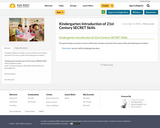
This guide will give you ideas on how to effectively introduce and teach 21st century skills with Kindergarten students.
- Subject:
- Education
- Material Type:
- Activity/Lab
- Lesson
- Teaching/Learning Strategy
- Unit of Study
- Date Added:
- 09/10/2018

This guide will give you ideas on how to effectively introduce and teach 21st century skills with Kindergarten students.
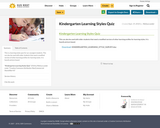
This is a learning styles quiz for our youngest students.
This can also be used with older students that need a modified version of other learning profiles for learning styles. It is heavily picture based.
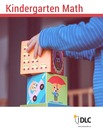
Kindergarten Math - A complete unit of videos.Introduction - Describing 3-D Shapes - Sorting 3-D Objects - Building With 3-D Objects - Making 3-D Objects - Which is Taller? - Comparing Lengths - Exploring Capacity - Exploring Mass - Show What You Know -

Featured are lessons and activities designed to be done with guidance from a parent or teacher. Have your child engage in the activities below, and watch as they develop the fundamental skills necessary for elementary-level math.

Comparing Numbers
Work with numbers 11-19 to gain foundations for place value.
For numbers 11 to19, Kindergarten students choose, combine, and apply strategies for answering
quantitative questions. This includes composing and decomposing numbers from 11 to 19 into ten ones and some further ones by writing and representing the numbers, counting and producing sets of given sizes, counting the number of objects in combined sets, or counting the number of objects that remain in a set after some are taken away. Objects, pictures, actions, and explanations are used to solve problems and represent thinking. Although CCGPS states, “Kindergarten students
should see addition and subtraction equations, and student writing of equations in kindergarten
is encouraged, but it is not required.” Please note: it is not until First Grade that “Understand the
meaning of the equal sign” is an expectation.
Mathematically proficient students might rely on using concrete objects or pictures to help conceptualize and solve a problem. While using objects to make sense of the quantities and relationships in problem situations, students thereby connect whether the answer makes sense through
comparisons and discussions. Using the mathematical language to verbalize their reasoning is an
important cognitive facet for establishing a strong place value foundation. The terms students should continue to use as they verbalize thinking are: join, add, separate, subtract, same amount as, equal, less, more, tens, and ones.
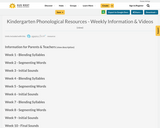
Phonological awareness skills are important in order to develop good reading and spelling skills. Having good phonological awareness skills means that a child is able to manipulate sounds and words, or “play” with sounds and words. For example, you might ask your child to break the word “cat” into individual sounds: “c-a-t.”
Important: These skills deal with SOUNDS not letters. For example, /t/ represents the sound and not the letter name “tee.” You will not use any written or visual letters when working with phonological activities. These activities are done with listening and speaking only. Learning the letter names and their corresponding sounds is also very important but should be taught and practiced at a different time of the day.
This resource will have a weekly activity for your to work on with your child/student(s). It will include a handout with information and guidance, as well as a video to help support you and the learner.
CLICK THE WORDS "INFORMATION FOR PARENTS AND TEACHERS" TO GET STARTED (do not click on view description).

Kindergarten Math problem solving.

This site has a collection of printables, online games, guided lessons, lesson plans, hands-on activities, song videos, interactive stories and science projects for kindergarten students.
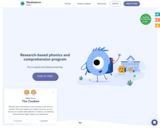
Lalilo is an online tool for K, 1st and 2nd grade teachers and students. The Lalilo website is accessible on tablets, iPads and computers. Lalilo works in school environments or in a distance learning setting.
Through personalized exercises students work on adaptive exercises in phonics, word recognition, and comprehension.
Lalilo creates a playful, interactive world where students journey through different worlds, collecting badges and unlocking stories. The vocabulary-rich stories teach students about nature and animals in engaging and fun ways.
The site also offers data at-a-glance. Teachers can track whole class and individual progress. They can also assign specific lessons.

This is a fabulous resource to support your literacy goals in the classroom. There are endless options of good-quality children's literature and accompanying activities. The website states: "This award-winning digital library hosts over 10,000 resources directly tied to the books teachers, caregivers and community partners turn to everyday. Organize all of your book resources in one place, create and share book lists, find helpful reading tips and strategies and track student reading progress by creating and signing into your free account today." All of this is available with a free account.

Practical advice and high impact teaching practices that improve outcomes in reading, writing and speaking and listening.
Guides are available for elementary schools and early education (birth to 5 years) as well.
Sections are included for Reading, Writing, Speaking, Listening, Interacting with Others, Emergent Literacy and within those areas you will find teaching practices, videos, sample phonics lessons, in practice examples and more.
A teaching tooklit map is provided to grade 6 with links to many of the items on the map! https://www.education.vic.gov.au/Documents/childhood/professionals/learning/literacy/lttusermap-ec.pdf (birth to 5)
https://www.education.vic.gov.au/Documents/school/teachers/teachingresources/discipline/english/literacy/lttusermap.pdf (Gr. 1 to 6)

A map with live links on how to prepare young students for literacy and interacting with others!

This video demonstrates at home make and beak word literacy strategies that you can do at home with your kids.

A collection of hands on math activities for kids in preschool to Grade 5.

Enjoy these stories about the popular Moon Dogs characters doing activities at home.
Included are free resources to read and print at home. They support the teaching of the following spellings/sounds:
- 'ae', 'ee', 'ow', 'er',
Check for other great free resources on this website while you're there.
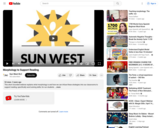
This short recorded webinar explains what morphology is and how we can infuse these strategies into our classrooms to support reading, specifically word solving.
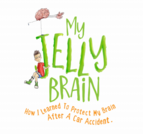
"This is a story of Mark and his Brain. At the age of 10, Mark sustained a brain injury which left him with some significant physical impairments. In this story we see how Mark and his Brain recover and overcome these injuries. We learn how to keep our brains safe, and we learn the importance of
including and accepting others.
My Jelly Brain is suitable for children aged 3 to 8 years. It is a read-aloud for the younger children however the older children could read this independently. My Jelly Brain is a teaching tool used to meet many of the Department of Education curriculum teaching outcomes (here in Nova Scotia) in multiple subjects up to and including grade 3. Although I expect that the educational curriculum may vary slightly from province to province, in Nova Scotia the book aligns with...many subjects and outcomes."
You will need to download the book to read it.
TEACHER RESOURCES - copy and paste this url into your web browser - https://drive.google.com/drive/folders/16gU5-_ZDR79y44y7rC2os546fDmpQhWX

The Observation Survey includes 6 tasks:
Letter Identification - Students are asked to identify capital and lower case letters in any way they can.
Word Test - Students read a list of 20 words.
Concepts about Print - This task identifies what children know about how print works.
Writing Vocabulary - Students are given 10 minutes to write as many words as they can.
Hearing and Recording Sounds in Words- A short story is dictated and students are asked to record the sounds they hear.
Text Reading - Students are asked to read text and their level is identified
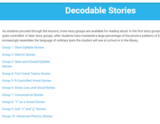
As students proceed through the lessons, more story groups are available for reading aloud. In the first story groups, the language is quite controlled. In later story groups, after students have mastered a large percentage of the phonics patterns of English, the language increasingly resembles the language of ordinary texts the student will see at school or in the library.
*Find the required lessons by selecting 120 Lessons from the top tab of the website.
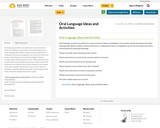
Oral language provides a foundation for communication of ideas and intelligent conversation, and the development of other language skills. Before students achieve proficiency in reading and writing, oral language is one of the most important means of learning and of acquiring knowledge.
Things to consider when selecting words to teach:
•Teach words that are central to the concept students must learn.
•Teach only words students do not already know.
•Teach students to use context clues, when available.
•Teach only a few words at a time so meaning is retained.
•Relate new words to previously learned words.
•Provide multiple exposures to words.